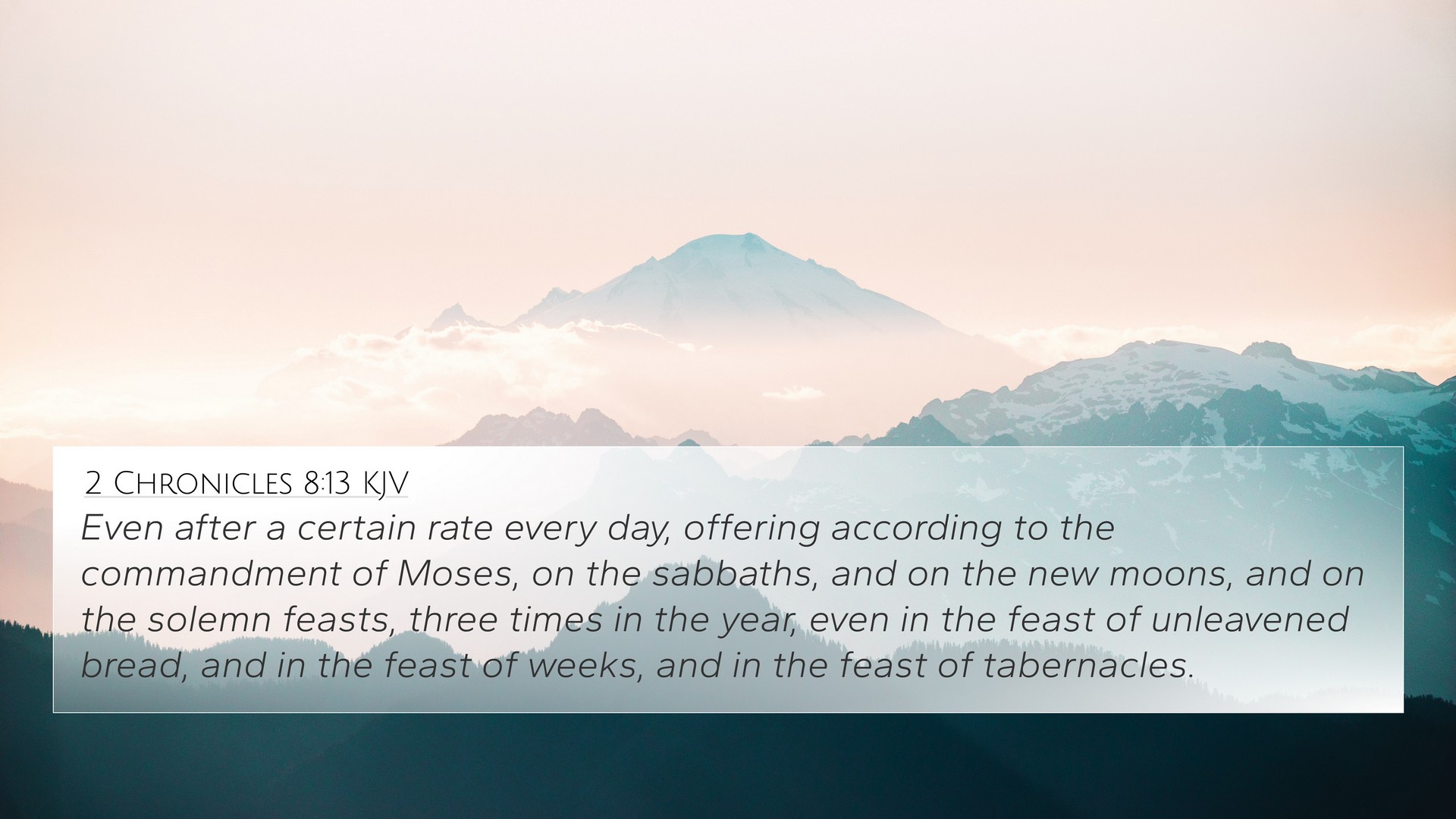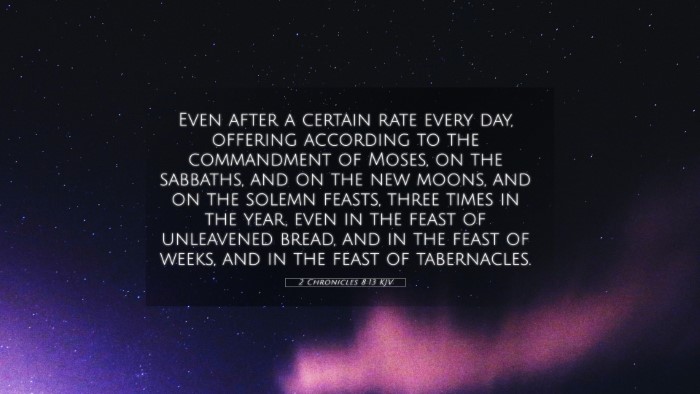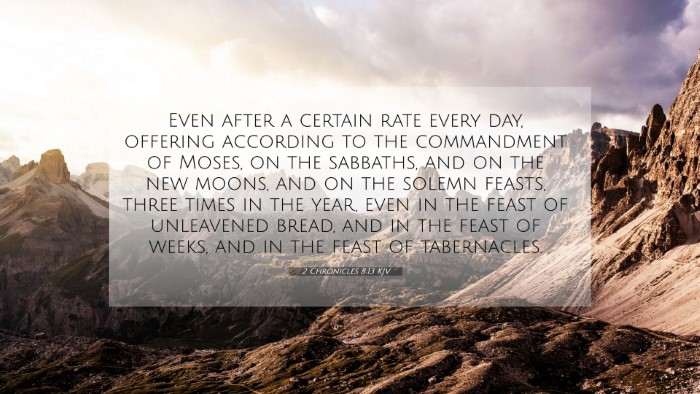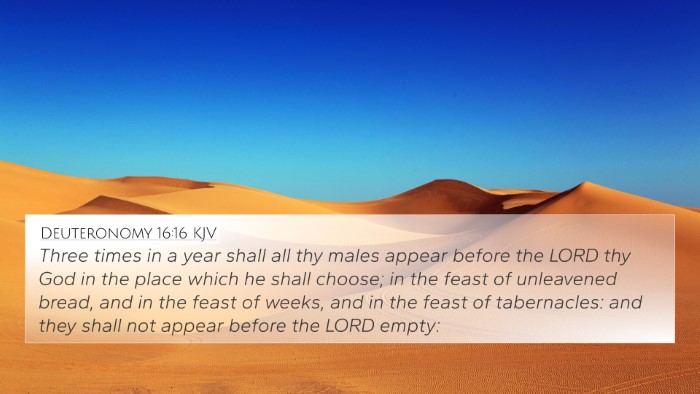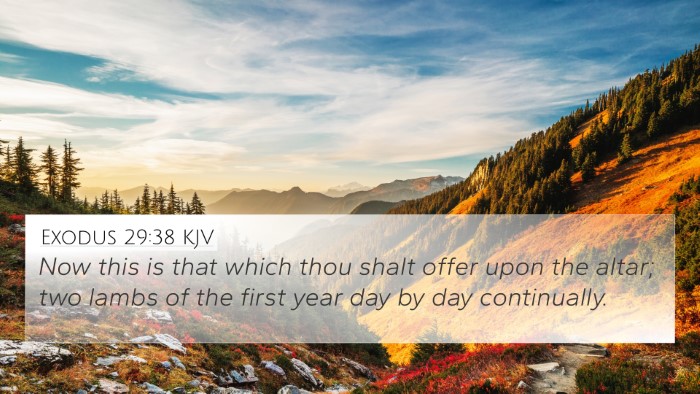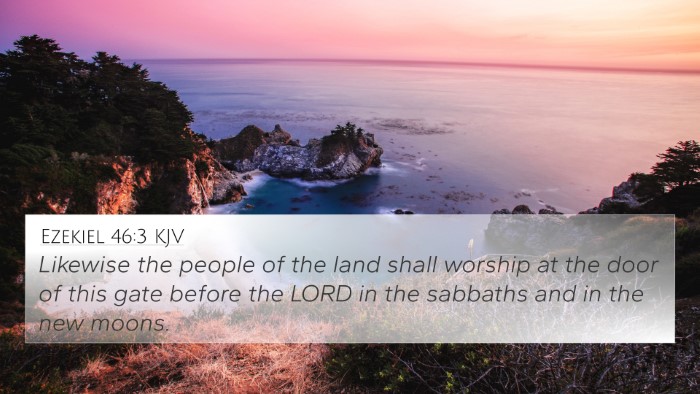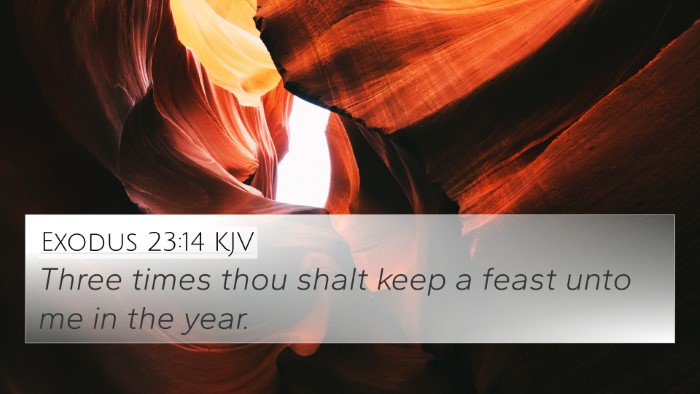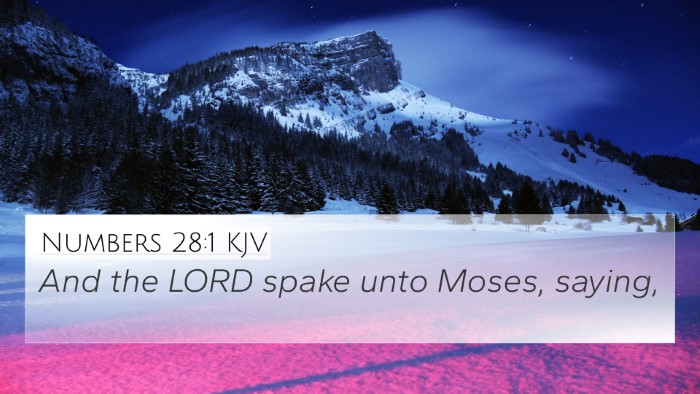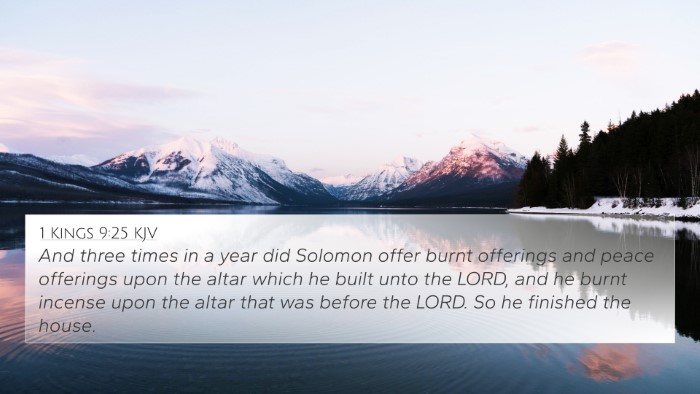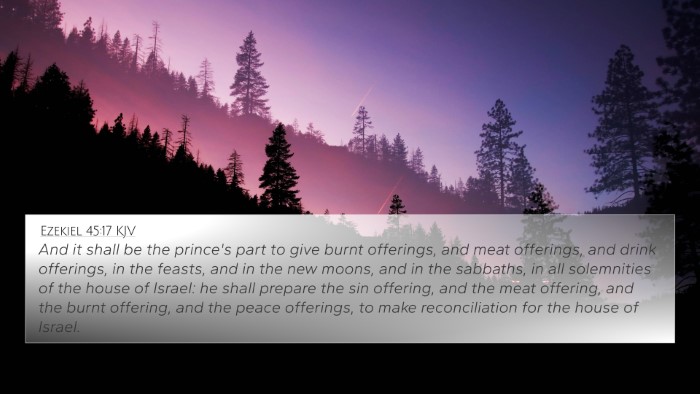Understanding 2 Chronicles 8:13
Verse Text: "Even after a certain rate every day, offering according to the commandment of Moses, on the sabbaths, and on the new moons, and on the solemn feasts, three times in the year, even in the feast of unleavened bread, and in the feast of weeks, and in the feast of tabernacles."
Verse Summary
This verse reflects King Solomon’s dedication to maintaining the worship practices as outlined by the Law of Moses. It emphasizes the importance of regular offerings during specified times of the year, illustrating Solomon's commitment to honoring God's commands through structured worship.
Commentary Insights
Matthew Henry's Commentary
Matthew Henry highlights that Solomon's observance of the law signifies his devotion to God’s covenant. By following the command to offer sacrifices during particular festivals, Solomon helped to reinforce the religious practices established for Israel, underlining the importance of communal worship and obedience to God's rules.
Albert Barnes' Notes
Albert Barnes notes that Solomon's offerings reflect a deep reverence for the sacred calendar laid out in the Mosaic Law. The meticulous approach to worship was a testament to Solomon's leadership and desire for Israel to remain in a right relationship with God through regular, collective acts of devotion.
Adam Clarke's Commentary
Adam Clarke points out that the mention of specific festivals – such as the Feast of Unleavened Bread, the Feast of Weeks, and the Feast of Tabernacles – identifies the rhythm of worship within Israelite culture. The verse emphasizes the continuity of worship and God’s provision through the seasons, indicating the spiritual significance these feasts held for the people.
Related Bible Verse Cross-References
- Exodus 23:14-17: Discusses the three annual feasts that all males must appear before the Lord, establishing the basis for Solomon’s obedience.
- Leviticus 23: Provides comprehensive details on the feasts and their observances, forming a crucial context for understanding 2 Chronicles 8:13.
- Deuteronomy 16:16-17: Reinforces the importance of appearances at the feasts and the appropriate offerings.
- 1 Kings 8:2: Details Solomon's assembly of all the elders of Israel for the dedication of the temple, reflecting a connection to communal worship at the stated feasts.
- 2 Chronicles 30:21: Highlights the observance of the Passover, indicating practices of worship continued throughout Israel's history.
- Ezra 3:4: Notes the keeping of the feasts of tabernacles after the return from exile, showing the enduring nature of these observances.
- Isaiah 66:23: Predicts a future where all mankind will worship before the Lord, suggesting the lasting significance of worship times.
- Colossians 2:16-17: Discusses the shadow of things to come, indicating New Testament reflections on the purpose of these Old Testament feasts.
- Luke 2:41-42: Refers to Jesus attending the Passover feast, connecting Old Testament practices to New Testament events.
- Hebrews 10:25: Encourages not forsaking the assembling of ourselves together, paralleling the communal worship aspect highlighted in 2 Chronicles.
Connections Between Bible Verses
2 Chronicles 8:13 serves as a significant point of reflection for the inter-Biblical dialogue between the Old and New Testaments. It illustrates how the themes of obedience and worship continue through both periods.
Thematic Bible Verse Connections
Throughout the Scriptures, themes of worship, sacrifice, and community remain essential. The structured celebration of God’s feasts, as laid out in 2 Chronicles, parallels later instructions in the New Testament that emphasize community worship and the importance of collecting together for spiritual encouragement.
Tools for Bible Cross-Referencing
To further explore cross-references and connections, consider using resources such as:
- Bible concordance
- Bible cross-reference guide
- Bible reference resources
- Comprehensive Bible cross-reference materials
Conclusion
In summary, 2 Chronicles 8:13 is a pivotal verse that showcases Solomon's adherence to God's commands in the context of worship and offerings. This guidance on structuring praise and devotion through time points to the broader narrative of God's faithfulness and the perpetual call for His people to gather in worship. By exploring the corresponding verses and themes, believers can gain deeper insights into the Bible's comprehensive call to worship and fidelity to God's instructions.
